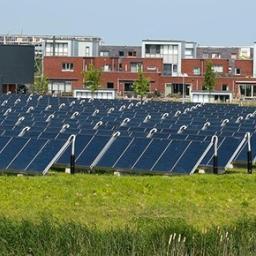The New Economy: Aligning Growth, Climate Action and Sustainable Development
Can the Paris Climate Agreement be combined with economic growth? What is the role of financial institutions in the transition towards a climate-neutral economy? On Tuesday 30 May 2017, Manish Bapna (World Resources Institute) will hold a PBL Academy Lecture.
Revolutionary developments in energy, cities, and land use are driving economic growth, while countries are trying to achieve the targets of the Paris Climate Agreement and the Sustainable Development Goals. Why is it then that, despite the economic benefits of effective climate policy, there is no large-scale climate action?
During his lecture, Manish Bapna will argue that governments could play a larger role in stimulating widespread growth and the implementation of measures by transforming the financial system, creating new business models and increasing investments in infrastructure and innovation.
Programme 30 May 2017
14:30 hrs Welcome, coffee and tea
15:00 hrs Lecture Manish Bapna, reflections and discussion
17:00 hrs Drinks
PBL Director-General, Professor Hans Mommaas, will be your host, and the lecture will be in English.
About Manish Bapna
Manish Bapna is the Executive Vice President and Managing Director of the World Resources Institute (WRI), a global research organisation that works to address six urgent sustainability challenges: food, forests, water, climate, energy and cities. Before joining WRI in 2007, Manish was executive director of the non-profit Bank Information Centre (BIC), whose mission it is to protect rights and promote sustainability in the projects and policies of international financial institutions. Manish also served as a senior economist at the World Bank, and is currently on the board of directors of Oxfam America and is the Co-Chair of the Open Government Partnership.
The World Resources Institute (WRI) is a global research organisation that turns big ideas into action at the nexus of environment, economic opportunity and human well-being. WRI and PBL have been collaborating for some time now; in particular, on issues such as climate and water.




